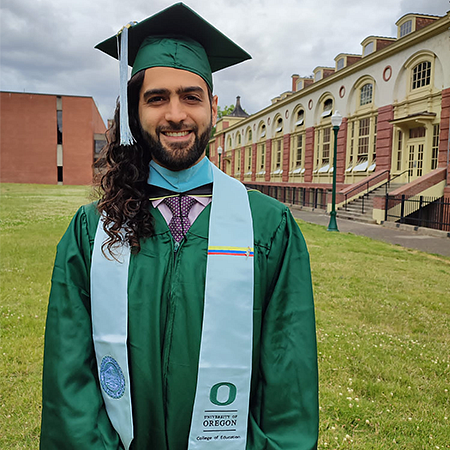
What did you learn during your time in the program that helped shaped your career goals?
During the EPoL program, one among many other things, became clear: both education research and policy are messy endeavors that require technical, systemic and historical thinking. And in order to drive equitable, structural changes, we need people working tirelessly at all levels – the classroom, the school building, research centers, and decision-making spaces. I wanted to further my skills and knowledge to actively participate in these efforts, here in the US and in my home country of Colombia. Specifically, I wanted to work at intersections because I believe that the more practitioners, educators, policymakers and researchers speak to each other and braid efforts, the higher the chances of enacting meaningful and transformative projects, reforms and interventions.
What were your career plans after you completed the program and how is it going?
As a former teacher and data analyst, I wanted to transition into the research sphere of education. After graduating, I was hired as an education research associate at the Stanford Research Institute's (SRI) Education Division, the ideal next step in my professional journey. Although I miss the classroom environment and working with students, I have found my research work quite enriching: I get a chance to participate in a handful of different projects spanning alternative high schools for youth off-track to graduate, to supporting the development of teacher residency programs to diversity the education workforce. Honestly, I am loving it, and I really appreciate all the growth opportunities within the organization.
How were COE faculty or staff influential or helpful during your time in the program?
I was fortunate to have several professors who were highly influential during my time at UO's COE. Dr. Liebowitz's stats courses substantively furthered my analytic skills, while Dr. Mazzei's foundational course on qualitative inquiry challenged my assumptions of what knowledge is and centered the power dynamics behind education research. I am also grateful for Dr. Zopluoglu's data science course sequence (I am using R and ggplot almost every day at work!) and Dr. Harrison's program evaluations courses, which helped me understand the need for, challenges and pitfalls of evaluation work. All in all, the path I was able to craft within the program and the amazing professors that supported me throughout launched me into my next step as researcher.
